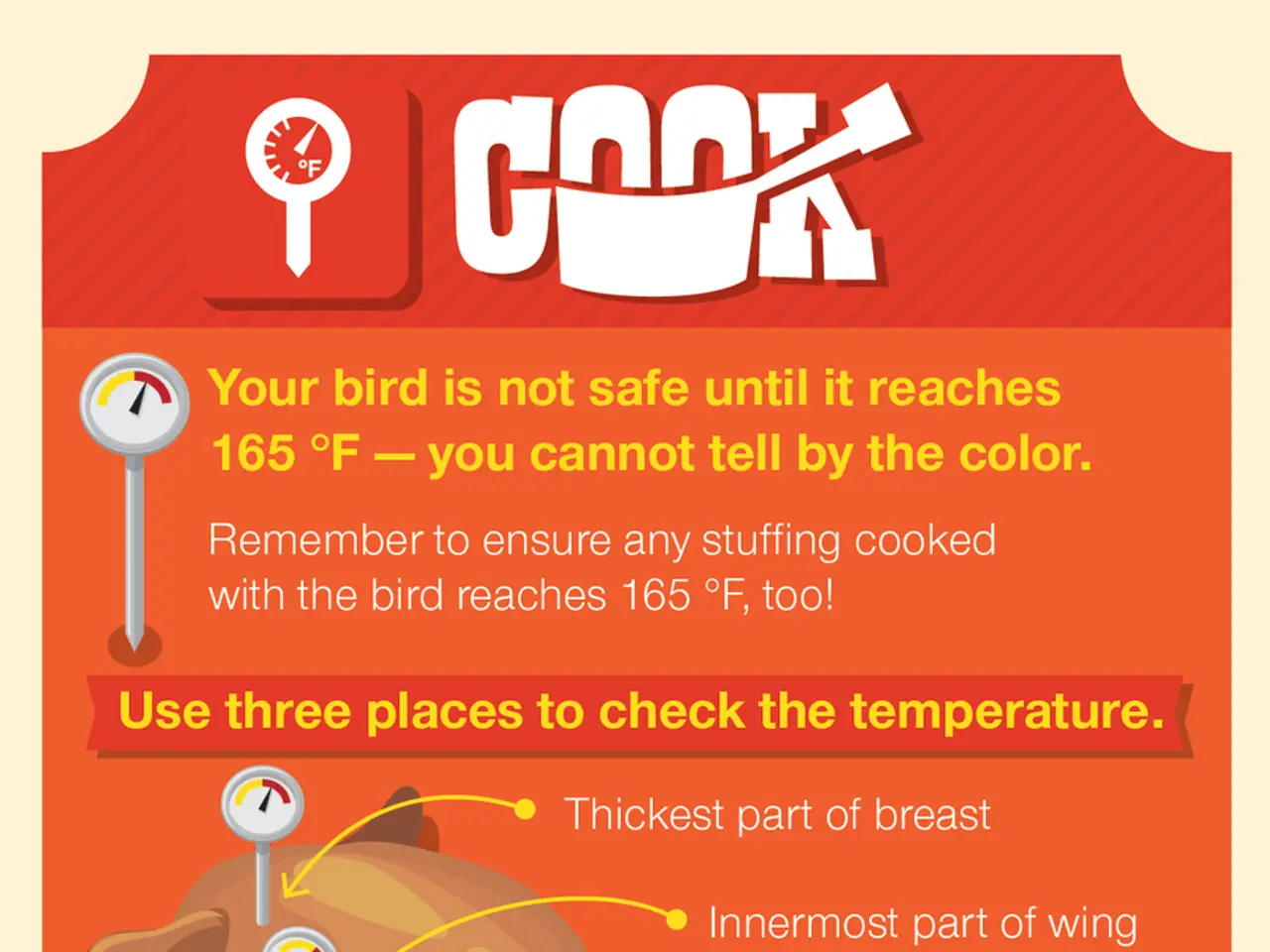Twenty-six-year-old woman battles severe, potentially life-threatening knee infection following bizarre rooster assault
In an unusual and alarming incident, a 26-year-old woman in Switzerland suffered a life-threatening knee infection following an attack by her own rooster. The incident, reportedly the first of its kind, highlights the importance of prompt medical attention and aggressive treatment in cases of septic arthritis, a serious joint infection.
Doctors at Canton Hospital Basel-Land in Liestal discovered a tiny lesion just above the woman's inner knee, which had been caused by the rooster's peck. If left untreated, septic arthritis can rapidly destroy bone and cartilage, causing permanent disability and, in rare cases, can be fatal.
The woman initially thought nothing of the small graze on her right knee, but by the following morning, her knee had swelled up, turned red, and became extremely painful. Symptoms of septic arthritis include fever, joint pain, and joint swelling. Tests on blood from her joint revealed she was suffering from the infection.
In the operating theatre, surgeons found the rooster's beak had punctured deep into the joint, causing serious internal damage. They proceeded to flush the knee with sterile solution, clean the damaged cartilage, and remove loose bits of bone. During the procedure, fluid spurted back out through the original wound, suggesting the beak had pierced the joint completely.
The infection was likely transferred from the rooster's dirty beak into the woman's joint. The bacterium responsible for the infection was identified as Enterococcus faecium, a rare bug typically found on farms.
The standard treatment for septic arthritis due to animal-related injuries involves rapid initiation of broad-spectrum antibiotics, urgent joint drainage (surgical or aspiration), thorough wound care, and close monitoring for complications. Tetanus and rabies prophylaxis should be considered based on the injury context.
In this case, the woman took nine days of oral antibiotics and made a full recovery. She could do deep squats with no pain at her two-month check-up, and ten months on, she was symptom-free. Physio may be necessary to get the joint moving again after treatment for septic arthritis.
With early diagnosis and aggressive treatment, outcomes are generally favourable, but delayed care increases the risk of permanent joint damage, chronic pain, and systemic infection. Complications such as osteomyelitis or sepsis can occur if treatment is inadequate or delayed.
"When septic arthritis is diagnosed quickly (24–48 hours), antibiotic/antifungal therapy is effective in most cases," says a medical report. "Therefore, follow the advice and indications of your veterinarian [or physician]."
[1] Centers for Disease Control and Prevention. (2019). Animal bites. Retrieved from
[2] National Health Service. (2020). Animal bites. Retrieved from
[3] American Family Physician. (2017). Management of animal bites. Retrieved from
[4] Mayo Clinic. (2020). Septic arthritis. Retrieved from
[5] UpToDate. (2020). Management of animal bites. Retrieved from
- In light of the woman's experience, it is crucial to seek immediate medical attention for any potential medical-conditions like septic arthritis, especially when they are caused by chronic diseases or general-news incidents such as accidents.
- The news of the severe knee infection after a pet bird attack underscores the significance of health-and-wellness education, including the early identification and treatment of mental-health issues and chronic diseases.
- Following the unusual case of a rooster causing septic arthritis, it is essential to stay informed about general-news related to agricultural practices and the potential risks associated with certain animals, such as potential sources of dangerous bacteria like Enterococcus faecium.








